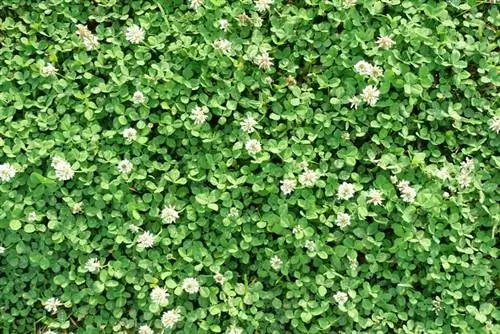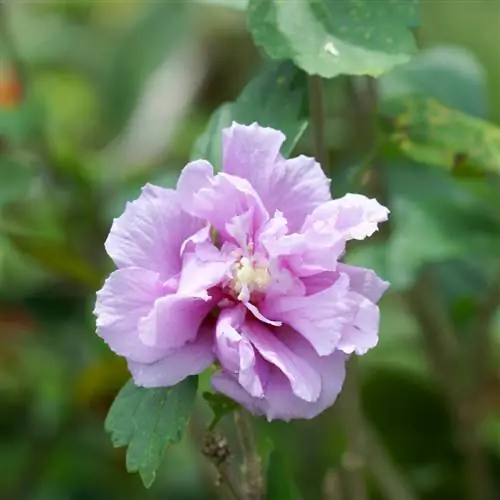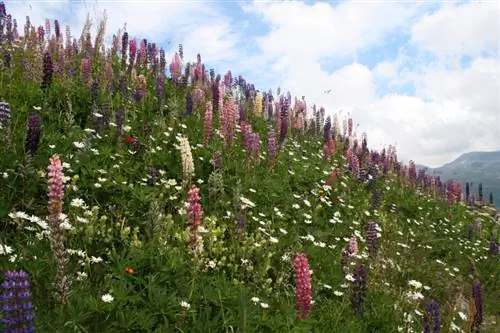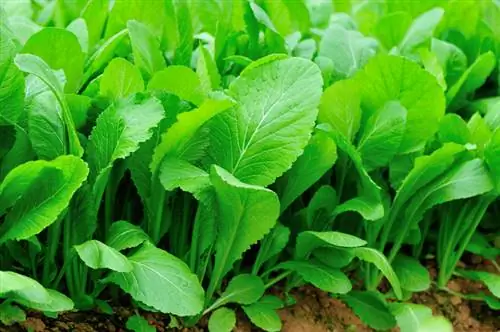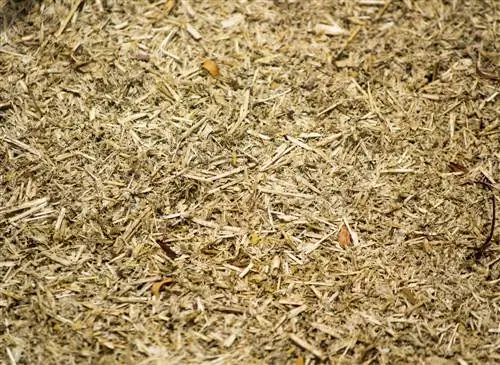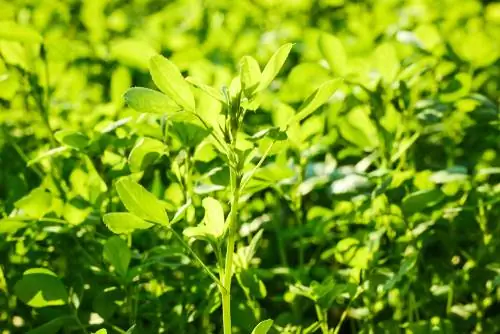- Author admin leonars@hobbygardeners.com.
- Public 2023-12-16 16:46.
- Last modified 2025-01-23 11:20.
With their ability to adapt to rather cool and humid climates, the various types of clover are not only an interesting fodder plant for cattle and other farm animals. Due to their special properties, types of clover such as red and white clover are also suitable as green manure for your own garden.
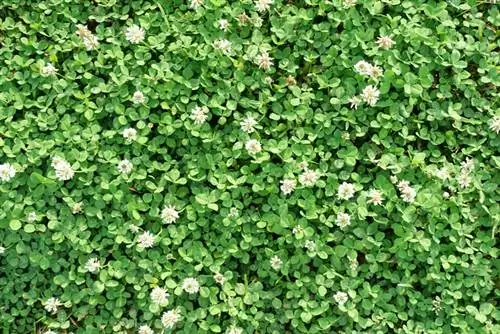
Why is clover a good green manure?
Clover serves as a green fertilizer by enriching the soil with nitrogen, loosening compacted soil, increasing water storage capacity and protecting against erosion. Red clover, white clover and Persian clover are particularly suitable for this and also provide nectar sources for bees and other insects.
What is meant by green manure
First of all, the term green manure sounds like a replacement for other, “artificial” types of fertilizer. The topic of green manure is not primarily, or at least not just, about adding nutrients to the soil substrate at a specific location. Green manure generally has such a positive effect on the growth prospects of subsequent crops because it has the following effects without much effort:
- a loosening of compacted soils
- the increased water storage capacity of the soil
- draining heavy rainfall
- Protecting the floor from strong sunlight
- Protection against wind erosion
Positive effects of growing clover on the soil
If you sow clover in your garden as a cover seed or for long-term soil recovery, then you are choosing a representative of the so-called legumes. These have the special property that the nodule bacteria on their roots can bind nitrogen from the atmosphere and introduce it into the soil. This means you can avoid artificial fertilizer preparations with a high nitrogen content. In addition, the deep and finely branched roots of red and white clover also ensure thorough loosening and better aeration of compacted soils. The protein-rich green matter of clover is not only a valuable food for many pets, but is theoretically also edible for humans.
Work the clover into the soil
Since red and white clover are easily winter-hardy in most locations, these types of clover are well suited for long-term soil improvement or as a relatively sturdy lawn replacement. For green manure in raised beds, for example, clover can be sown after the harvest until August. However, the plants should be mulched in autumn, otherwise the soil will not be available for cultivation with a subsequent crop until around May. The so-called Persian clover (Trifolium resupinatum) offers a possible alternative, as it is not hardy and therefore decomposes on its own in a timely manner.
Tip
Growing clover as a cover crop not only enables effective green manure, but also offers many bees, bumblebees and butterflies an additional source of nectar.

